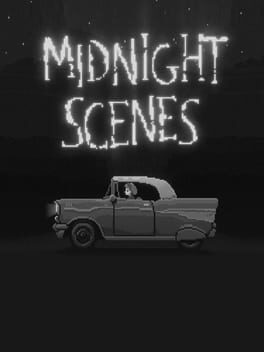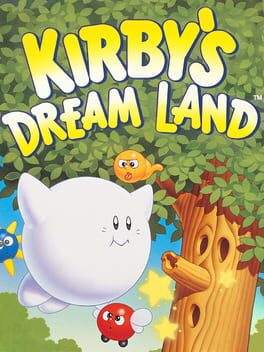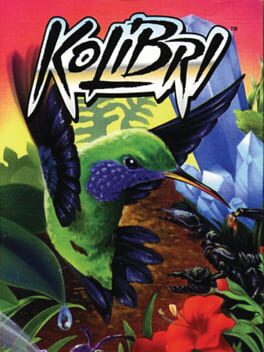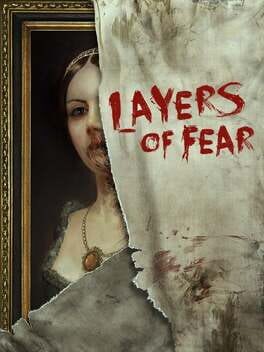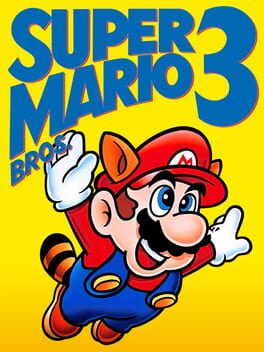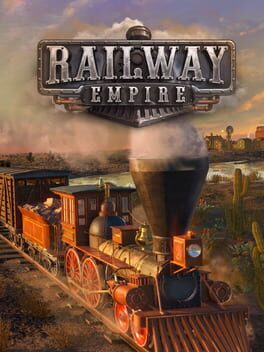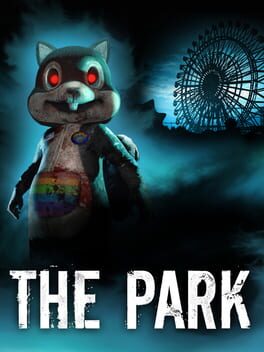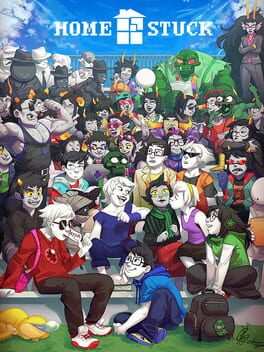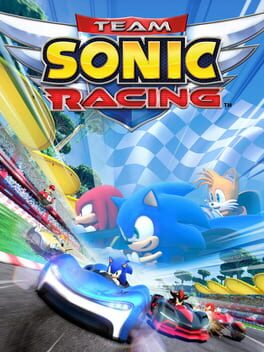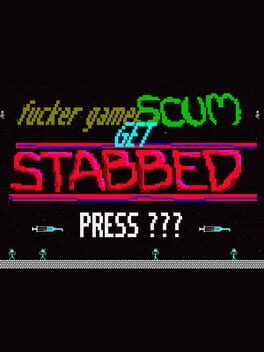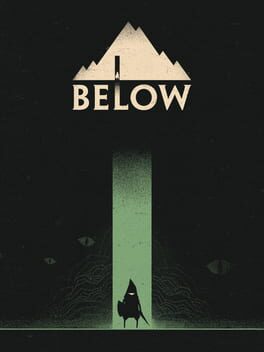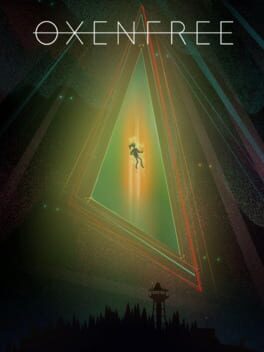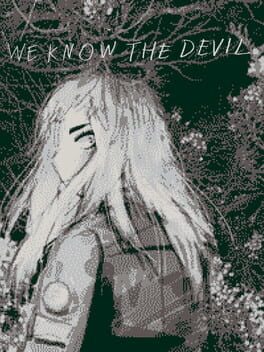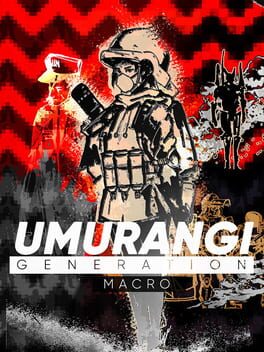QuinnK
187 Reviews liked by QuinnK
Really enjoy this series and I hope we keep getting more. The puzzles aren't too difficult but don't feel tedious either and I love the artwork in theme. I think it's interesting that the main inspiration cited is The Twilight Zone because I don't really see the connection other than them both being in black and white. This series is focused a lot more on monsters and can have a quite bit more blood in it. It's not a complaint. I suppose it's the one used because it's probably the most well known inspiration that something like this could have.
Kirby's Dream Land
1992
A pretty solid, if ultimately outclassed, start to the series. A lot of features are missing, including the copy ability that would be the series' staple, but Kirby still feels good to move around and the charming designs of all the enemies are still iconic to this day. At 30ish mins with an extra harder difficulty after completion, it's hard to recommend any kind of price tag, but it's a fun and refreshingly brief time.
Kolibri
1995
Le vert colibri, le roi des collines,
Voyant la rosée et le soleil clair
Luire dans son nid tissé d'herbes fines,
Corme lm frais rayon s'échappe dans l'air.
II se hâte et vole aux sources voisines,
Ou les bambous font le bruit de la mer,
Ou I'aoka rouge aux odeurs divines
S'ouvre et porte au cœur un humide éclair.
Vers la fleur dorée il descend, se pose,
Et boit tant d'amour dans la coupe rose
Qu'il meurt, ne sachant s'il l'a pu tarir.
Sur ta lèvre pure, o ma bien-aimée,
Telle aussi mon âme eut voulu mourir,
Du premier baiser qui l'a parfumée.
Voyant la rosée et le soleil clair
Luire dans son nid tissé d'herbes fines,
Corme lm frais rayon s'échappe dans l'air.
II se hâte et vole aux sources voisines,
Ou les bambous font le bruit de la mer,
Ou I'aoka rouge aux odeurs divines
S'ouvre et porte au cœur un humide éclair.
Vers la fleur dorée il descend, se pose,
Et boit tant d'amour dans la coupe rose
Qu'il meurt, ne sachant s'il l'a pu tarir.
Sur ta lèvre pure, o ma bien-aimée,
Telle aussi mon âme eut voulu mourir,
Du premier baiser qui l'a parfumée.
Layers of Fear
2016
Super Mario Bros. 3
1988
Railway Empire
2018
The Park
2015
Homestuck
2009
Team Sonic Racing
2019
This review contains spoilers
Team Sonic racing is very disappointing. It is a perfectly fine kart racer combined with a terrible visual novel which feels like it only exists because someone higher up in the company decided that a game that didn't benefit from a story needed one. In fact, everything in the game kind of feels like it was decided by someone else. It is almost cliché to point out that Sega All Stars Racing Transformed was better, but this is a step back in every way except the team mechanic. Even the unfortunately brutal difficulty balancing around challenge events seems to be a step backwards.
First let's talk about the Team Mechanic. It certainly has potential, but is honestly very flawed. This part of the game forces set teams for no real reason, with some of those teams being questionable at best. This could have been solved by just letting the player pick one teammate from each type for a custom team, allowing for more variety in player characters and letting me not have to race with Vector The Crocodile if I want to play Blaze The Cat, the best Sonic character. I would love to play with a team of Blaze, Rouge, and Big The Cat, but alas I cannot. I will give the story mode credit for not forcing you to use specific characters, despite the bad visual novel bits heavily implying which team it expects you to use, even if ultimately nobody really feels unique enough to stand out from their archetypes outside of their aesthetics anyway. Swapping powerups with teammates is genuinely a neat idea. Making slingshotting your car a more codified team activity is also a good idea. Team boosts are... ok? They aren't as good as Transformed's equivalent ultimate system but they're just... there. At least they have neat music attached to them.
The thing I really didn't expect though was just how bad the visual novel side of things were. It seems to only be able to show one or two characters at a time, outside of one big crowd shot at the end (which is a single sprite not even containing everyone in the cast). It is often unclear who is present in a scene, with characters jumpscaring you by becoming suddenly present, and towards the end having Eggman and Dodon-Pa openly discuss plot elements that the other cast members just seem to ignore. It is baffling to see a big budget title completely fail at something that indie devs with zero budget have done better jobs at. And even with better presentation, the plot drags. 5 chapters or so are just the characters getting introduced, milling around, everyone but Big The Cat thinking Dodon-Pa is the villain, and them making jokes about Big being stupid and Sonic being hyperfocused on having fun despite signs that he's clearly falling into a trap. All the characters are pretty two-dimensional in this, even by the standards of recent Sonic games. They then proceed to all just... keep racing, despite numerous suspicions that something is going on, only for it eventually to come out that the obvious twist villain is just a rich monarch slash corporate CEO who could have just explained this four chapters ago. Even if this had been a trap, everyone just... kept racing anyway, which... it sure was a decision to make every motivating factor in your racing game point away from racing being a good idea. Anyway, nobody in the Sonic cast manages to point out that Dodon-Pa has been making them do unpaid labour before Eggman kidnaps him for no reason and forces everyone to... race more. Even though they were already racing. And had no intentions on stopping. And then the mcguffin explodes in a bad cutscene and everyone is fine and gets new cars so they can keep racing.
So basically, this game made Sonic 06's plot look like Shakespeare by comparison. No story would have actually been better than this, and that's depressing.
The music is really good though. Combining several Sonic tracks into each track leads to some really cool mashups and new takes on songs, and it is without doubt the best thing in this game. It's a shame that the fantastic soundtrack couldn't support a better game. My recommendation would be to just listen to the soundtrack while playing a better kart racer.
First let's talk about the Team Mechanic. It certainly has potential, but is honestly very flawed. This part of the game forces set teams for no real reason, with some of those teams being questionable at best. This could have been solved by just letting the player pick one teammate from each type for a custom team, allowing for more variety in player characters and letting me not have to race with Vector The Crocodile if I want to play Blaze The Cat, the best Sonic character. I would love to play with a team of Blaze, Rouge, and Big The Cat, but alas I cannot. I will give the story mode credit for not forcing you to use specific characters, despite the bad visual novel bits heavily implying which team it expects you to use, even if ultimately nobody really feels unique enough to stand out from their archetypes outside of their aesthetics anyway. Swapping powerups with teammates is genuinely a neat idea. Making slingshotting your car a more codified team activity is also a good idea. Team boosts are... ok? They aren't as good as Transformed's equivalent ultimate system but they're just... there. At least they have neat music attached to them.
The thing I really didn't expect though was just how bad the visual novel side of things were. It seems to only be able to show one or two characters at a time, outside of one big crowd shot at the end (which is a single sprite not even containing everyone in the cast). It is often unclear who is present in a scene, with characters jumpscaring you by becoming suddenly present, and towards the end having Eggman and Dodon-Pa openly discuss plot elements that the other cast members just seem to ignore. It is baffling to see a big budget title completely fail at something that indie devs with zero budget have done better jobs at. And even with better presentation, the plot drags. 5 chapters or so are just the characters getting introduced, milling around, everyone but Big The Cat thinking Dodon-Pa is the villain, and them making jokes about Big being stupid and Sonic being hyperfocused on having fun despite signs that he's clearly falling into a trap. All the characters are pretty two-dimensional in this, even by the standards of recent Sonic games. They then proceed to all just... keep racing, despite numerous suspicions that something is going on, only for it eventually to come out that the obvious twist villain is just a rich monarch slash corporate CEO who could have just explained this four chapters ago. Even if this had been a trap, everyone just... kept racing anyway, which... it sure was a decision to make every motivating factor in your racing game point away from racing being a good idea. Anyway, nobody in the Sonic cast manages to point out that Dodon-Pa has been making them do unpaid labour before Eggman kidnaps him for no reason and forces everyone to... race more. Even though they were already racing. And had no intentions on stopping. And then the mcguffin explodes in a bad cutscene and everyone is fine and gets new cars so they can keep racing.
So basically, this game made Sonic 06's plot look like Shakespeare by comparison. No story would have actually been better than this, and that's depressing.
The music is really good though. Combining several Sonic tracks into each track leads to some really cool mashups and new takes on songs, and it is without doubt the best thing in this game. It's a shame that the fantastic soundtrack couldn't support a better game. My recommendation would be to just listen to the soundtrack while playing a better kart racer.
As eye-catching as this title may be, the game feels a bit like a poor new-age impression of John George Jones Games (Definitely recommend a read there, interesting insight into his works). "Go to Hell" felt like it had this petty hatred to the player that it kept through as you pushed through literal hell, while "Fucker Gamer Scum Get Stabbed" is explicitly made to feel juvenile and amateurish to the extend that I think this was intended to feel like it was made by a 14-year-old angsty boy. Which is fine, I guess.
Below
2018
"Worries go down better with soup than without it." This is a Yiddish proverb. I am told, at least; my relationship with Jewish culture is a little messy. But I think of this saying often. Soup holds a kind of venerated position in Ashkenazi cuisine. Kreplach, matzo balls, mushroom barley, all that. It’s a staple. My dad, who provides my Jewish half, ironically, doesn’t enjoy soup much. He finds it boring. But the simplicity of a good soup is often it’s appeal. When we say “soup”, what do you think of? There are cold gazpachos and hot and sours, of course, but I think most of the time we think of hot, salty broth. The soup is clear but heavy, simple but filling. Soup is a potent food when it comes to meaning; it immediately conjures care, home, nourishment, warmth. Soup is hot, soothing, healing. Bad times with soup are better than bad times without soup.
In Below, knowing how to make a good soup is essential. After all, it is a game filled with worries. Soup will save your life. Each time you make it to a campfire, you get the chance make more soup, something that will carry you further into the depths. I won’t go as far as to say that the campfire feels like home. It, like your own little character’s life, is fleeting, and trapped in a dungeon. You constantly grow hungrier, thirstier, colder; you are creature of temperature and appetite, and you must abide by your bodily needs. That decay is a constant that defines Below. While you may know where the next campfire lies, you never know what lies between you and it. You have to be weary of each step and prepared for each sword swing. But for a moment, when you’re next to the fire, you can stop, breathe and nourish yourself. The campfire is an opportunity to replenish your supplies. To take a breather. To warm your bones. To make more soup.
There is a tragedy to Below's legacy. Generally, folks have seemed to be either underwhelmed and annoyed with it. It had been in development for over 5 years, announced during the bright and hot summer at E3 2013, and it was released in the cold winter nights of 2018. As it lead up to release, I got the creeping sensation that it was going to flop. And I think I was right. In an interview with Newsweek, Kris Piotrowski (Creative Director at Capybara Games) said “It's very important for there to be some people who make something very specific. And maybe you're not going to like this. But somebody else will fucking love it.” I think it is pretty clear that it will be divisive from it’s first moments: the first thing you see in the game is a long, slow zoom on a single little ship in the ocean, for several minutes. For me, I adored every moment of this crawl, but I think others will immediately shut the game off.
I’ll call it an unsung masterpiece for a specific reason: there are underrated masterpieces out there that I love a lot, but Below doesn’t even really have a ride-or-die fanbase. It released to tepid praise and hasn’t had a second wind. Part of the issue is that Below lacks a lot of character. That’s not to say it is not impressive. It is visually stunning to look at: the tilt shifted camera, the muted tones, the geometric geography and architecture. And the sound design is some of the best I’ve encountered in I think maybe any game. No, the issue isn’t a lack of presentation, but a lack of flair. There are so few discernable qualities. There aren’t any memorable characters, no flashy boss battles, no unique settings. Even mechanically, there is little that stands out about Below. I can give you the high level pitch, of course: it’s a procedural death labyrinth with survival elements. But will that pitch actually sell anyone on the game? I doubt it.
Which is a shame, because despite that lack of character, Below is expertly crafted and pretty beautiful.
If I had to use one word to describe Below, it would be “dread”. Every single surface of this game is covered in dread. Each sound, each inch of dirt is both beautiful and eerie in the same breath. Below’s environment is incredibly dark, often necessitating the use of a torch or the lantern. The game is set to a distance from your player character that dwarfs them; there’s this tilt-shift effect that makes everything seem minuscule. I found myself hunching over (more than usual) to squint at the darkness surrounding me. Shadows cast against the floor, the glowing eyes of beasts, prey in your periphery. The soundtrack by Jim Guthrie often sounds less like music and more like the groans of the earth itself. And if it’s not an ominous hum, it’s a somber, thoughtful ambiance, the wind brushing through the grass and the waves crashing on the shore. Sounds echo through the caves, scrapes of stones and trickles of water, the chitters and growls of something hunting you. You crawl into dark, terrible and ancient sepulchers, lined with death and sorrow. The distant scrapes and dark corridors become a canvas on which to paint your deepest fears.
Every time you die, you hear this sound. It’s a strange, sinister bellow, a deathly horn. And when you respawn, a new wanderer drifting onto that same rainy shore? That same haunting bellow sounds. As if to say, “This will happen again.”
Below is a difficult game. At times to a fault; there are a few death traps in there that are genuinely cruel. You’ll die a lot, and it’s a big part of the experience. You play not as a single adventurer, but dozens of them. Each death is final, and you play as a successor to the poor doomed soul who met their end in the caverns below. Below is an incredibly slow kind of difficulty. Combat is a deliberate, punishing affair. Sprinting through a room will often lead to a swift death. Your inventory space, too, is incredibly limited. You have sixteen slots for food and sixteen for materials. Personally, I am an inventory hoarder. I will maximize the use of every pound I can carry. But Below, in its limitations, has liberated me from this curse by forcing me to get rid of anything I truly don’t need. Any slot with an unneeded stick or stone is taking up space that could be taken by arrows or bandages. Be careful what you pack. Often you may die because you didn’t have enough materials on hand. Many deaths are deaths by attrition. Many players, I imagine, are going to feel these deaths are overly punishing. I certainly did, at times. But I also recognized that it was core to what the game was doing. It is an easy mistake, I think, to assume Below would be better if it wasn’t a Roguelite. There are lots of games like that nowadays, where the proc-gen structure seems more to be a mechanic on a dart board rather than a deliberate choice. But Below, really, can only be a Roguelite. Because structurally, it isn’t about beating the game. Having to delve even deeper with each death just to make progress can be intimidating. You’ll often lose a lot of materials, too. You can find your body with its wares still on it, now only a dry skeleton. How long has it been? Months? Years? I couldn’t say. But only take what you need.
At its most tense, Below’s dungeon crawling is either a desperate sprint or desperate struggle. On certain floors, you’ll sprint like your life depends on it, because it quite literally does. At the same time, you’ll have to be careful to dodge attacks or not to trigger any traps. So these marathons begin to ebb and flow from trepidation to a frantic sprint. At other times, Below puts you up against the wall. You feel surrounded, outmatched, overwhelmed. I wanted to flail in retaliation like a wild animal had leaped up against me, please, God, anything to get this thing away from me. But you have to be patient. Put up your shield. Wait to parry. Dodge their attacks. At these times, you need to be careful and patient, but also keep moving. Your hunger and thirst aren’t going to slow down. No matter which of these modes you end up playing in at a given time, Below’s most suspenseful moments are at the middle of a tug of war between a need to rush and a need to be as careful as possible. There is a specific area in the game (Floor 14 onwards, for those who know the game) that is genuinely one of the most dreadful levels in any game I’ve ever played; every single time I step foot in that place, my heart starts pounding, a frantic and desperate crawl through the darkness, pulled between the tension of needing to go slowly but needing to go faster. It’s dreadful. But I persevere. I make it through. Eventually.
Success in Below is not overcoming a mountain. It is about going deep down. There is no dragon in Below. No corrupt king, no great sea serpent, no devils or demons. There is nothing here for you to conquer. There are maybe one or two things I would call “boss battles”, but the biggest obstacles in Below are impossible to even scathe. Below is not a game about accomplishment. It’s a game about mastery. The game teaches you almost nothing about how to play; most mechanics have to be discovered by the players. And if you make it far enough, you begin to realize the goal is not descent, but the collection of these items called shards you discover with your lantern. And suddenly, it clicks into place. Succeeding in Below does not come from a single fell swoop, but a series of knicks. It comes from a series of successive runs. You stand on the shoulders of a thousand dead wanderers who you will join soon enough. By the later hours of Below, your player character(s) will not become any stronger. But you have learned so much. You know where to find the materials to make bombs, or how to make bandages, or how to get to the deepest pits of the island in only a few minutes. You begin to realize that you actually don’t lose much with each death. Sure, you might lose a hefty sum of crystals, or a stockpile of arrows and bandages, or a piece of gear you were saving, but there are ample ways to farm materials, and you can always find that gear again. Your goal is not to descend deeper, but to collect these shards with your lantern. And acquiring those shards is far less about slaughtering and spelunking, and more about knowing and understanding the cave systems of this island. You gain mastery, gain an understanding, of the world of Below. You find comfort in the little rituals you develop, of going and gathering picking supplies and hunting for materials, of making soup. It is a game about, despite all the insurmountable dread, finding a way forward anyway.
Again, there’s little I can say that will sell you on Below. There’s no big twist or hook to pull you in. It is just a nearly-perfectly designed game. Like a good soup, Below doesn’t look like much on the outside. But it’s a product of profound craftsmanship. It’s a stew of mechanics which compliment eachother precisely, a perfectly balanced mixture. And maybe once you’ve taken a spoonful, you’ll find that you think it’s a little boring. But give it time, pay close attention to it, understand it’s balance, and you might find that it grows on you, and you can recognize it as a rich and masterfully made experience.
In Below, knowing how to make a good soup is essential. After all, it is a game filled with worries. Soup will save your life. Each time you make it to a campfire, you get the chance make more soup, something that will carry you further into the depths. I won’t go as far as to say that the campfire feels like home. It, like your own little character’s life, is fleeting, and trapped in a dungeon. You constantly grow hungrier, thirstier, colder; you are creature of temperature and appetite, and you must abide by your bodily needs. That decay is a constant that defines Below. While you may know where the next campfire lies, you never know what lies between you and it. You have to be weary of each step and prepared for each sword swing. But for a moment, when you’re next to the fire, you can stop, breathe and nourish yourself. The campfire is an opportunity to replenish your supplies. To take a breather. To warm your bones. To make more soup.
There is a tragedy to Below's legacy. Generally, folks have seemed to be either underwhelmed and annoyed with it. It had been in development for over 5 years, announced during the bright and hot summer at E3 2013, and it was released in the cold winter nights of 2018. As it lead up to release, I got the creeping sensation that it was going to flop. And I think I was right. In an interview with Newsweek, Kris Piotrowski (Creative Director at Capybara Games) said “It's very important for there to be some people who make something very specific. And maybe you're not going to like this. But somebody else will fucking love it.” I think it is pretty clear that it will be divisive from it’s first moments: the first thing you see in the game is a long, slow zoom on a single little ship in the ocean, for several minutes. For me, I adored every moment of this crawl, but I think others will immediately shut the game off.
I’ll call it an unsung masterpiece for a specific reason: there are underrated masterpieces out there that I love a lot, but Below doesn’t even really have a ride-or-die fanbase. It released to tepid praise and hasn’t had a second wind. Part of the issue is that Below lacks a lot of character. That’s not to say it is not impressive. It is visually stunning to look at: the tilt shifted camera, the muted tones, the geometric geography and architecture. And the sound design is some of the best I’ve encountered in I think maybe any game. No, the issue isn’t a lack of presentation, but a lack of flair. There are so few discernable qualities. There aren’t any memorable characters, no flashy boss battles, no unique settings. Even mechanically, there is little that stands out about Below. I can give you the high level pitch, of course: it’s a procedural death labyrinth with survival elements. But will that pitch actually sell anyone on the game? I doubt it.
Which is a shame, because despite that lack of character, Below is expertly crafted and pretty beautiful.
If I had to use one word to describe Below, it would be “dread”. Every single surface of this game is covered in dread. Each sound, each inch of dirt is both beautiful and eerie in the same breath. Below’s environment is incredibly dark, often necessitating the use of a torch or the lantern. The game is set to a distance from your player character that dwarfs them; there’s this tilt-shift effect that makes everything seem minuscule. I found myself hunching over (more than usual) to squint at the darkness surrounding me. Shadows cast against the floor, the glowing eyes of beasts, prey in your periphery. The soundtrack by Jim Guthrie often sounds less like music and more like the groans of the earth itself. And if it’s not an ominous hum, it’s a somber, thoughtful ambiance, the wind brushing through the grass and the waves crashing on the shore. Sounds echo through the caves, scrapes of stones and trickles of water, the chitters and growls of something hunting you. You crawl into dark, terrible and ancient sepulchers, lined with death and sorrow. The distant scrapes and dark corridors become a canvas on which to paint your deepest fears.
Every time you die, you hear this sound. It’s a strange, sinister bellow, a deathly horn. And when you respawn, a new wanderer drifting onto that same rainy shore? That same haunting bellow sounds. As if to say, “This will happen again.”
Below is a difficult game. At times to a fault; there are a few death traps in there that are genuinely cruel. You’ll die a lot, and it’s a big part of the experience. You play not as a single adventurer, but dozens of them. Each death is final, and you play as a successor to the poor doomed soul who met their end in the caverns below. Below is an incredibly slow kind of difficulty. Combat is a deliberate, punishing affair. Sprinting through a room will often lead to a swift death. Your inventory space, too, is incredibly limited. You have sixteen slots for food and sixteen for materials. Personally, I am an inventory hoarder. I will maximize the use of every pound I can carry. But Below, in its limitations, has liberated me from this curse by forcing me to get rid of anything I truly don’t need. Any slot with an unneeded stick or stone is taking up space that could be taken by arrows or bandages. Be careful what you pack. Often you may die because you didn’t have enough materials on hand. Many deaths are deaths by attrition. Many players, I imagine, are going to feel these deaths are overly punishing. I certainly did, at times. But I also recognized that it was core to what the game was doing. It is an easy mistake, I think, to assume Below would be better if it wasn’t a Roguelite. There are lots of games like that nowadays, where the proc-gen structure seems more to be a mechanic on a dart board rather than a deliberate choice. But Below, really, can only be a Roguelite. Because structurally, it isn’t about beating the game. Having to delve even deeper with each death just to make progress can be intimidating. You’ll often lose a lot of materials, too. You can find your body with its wares still on it, now only a dry skeleton. How long has it been? Months? Years? I couldn’t say. But only take what you need.
At its most tense, Below’s dungeon crawling is either a desperate sprint or desperate struggle. On certain floors, you’ll sprint like your life depends on it, because it quite literally does. At the same time, you’ll have to be careful to dodge attacks or not to trigger any traps. So these marathons begin to ebb and flow from trepidation to a frantic sprint. At other times, Below puts you up against the wall. You feel surrounded, outmatched, overwhelmed. I wanted to flail in retaliation like a wild animal had leaped up against me, please, God, anything to get this thing away from me. But you have to be patient. Put up your shield. Wait to parry. Dodge their attacks. At these times, you need to be careful and patient, but also keep moving. Your hunger and thirst aren’t going to slow down. No matter which of these modes you end up playing in at a given time, Below’s most suspenseful moments are at the middle of a tug of war between a need to rush and a need to be as careful as possible. There is a specific area in the game (Floor 14 onwards, for those who know the game) that is genuinely one of the most dreadful levels in any game I’ve ever played; every single time I step foot in that place, my heart starts pounding, a frantic and desperate crawl through the darkness, pulled between the tension of needing to go slowly but needing to go faster. It’s dreadful. But I persevere. I make it through. Eventually.
Success in Below is not overcoming a mountain. It is about going deep down. There is no dragon in Below. No corrupt king, no great sea serpent, no devils or demons. There is nothing here for you to conquer. There are maybe one or two things I would call “boss battles”, but the biggest obstacles in Below are impossible to even scathe. Below is not a game about accomplishment. It’s a game about mastery. The game teaches you almost nothing about how to play; most mechanics have to be discovered by the players. And if you make it far enough, you begin to realize the goal is not descent, but the collection of these items called shards you discover with your lantern. And suddenly, it clicks into place. Succeeding in Below does not come from a single fell swoop, but a series of knicks. It comes from a series of successive runs. You stand on the shoulders of a thousand dead wanderers who you will join soon enough. By the later hours of Below, your player character(s) will not become any stronger. But you have learned so much. You know where to find the materials to make bombs, or how to make bandages, or how to get to the deepest pits of the island in only a few minutes. You begin to realize that you actually don’t lose much with each death. Sure, you might lose a hefty sum of crystals, or a stockpile of arrows and bandages, or a piece of gear you were saving, but there are ample ways to farm materials, and you can always find that gear again. Your goal is not to descend deeper, but to collect these shards with your lantern. And acquiring those shards is far less about slaughtering and spelunking, and more about knowing and understanding the cave systems of this island. You gain mastery, gain an understanding, of the world of Below. You find comfort in the little rituals you develop, of going and gathering picking supplies and hunting for materials, of making soup. It is a game about, despite all the insurmountable dread, finding a way forward anyway.
Again, there’s little I can say that will sell you on Below. There’s no big twist or hook to pull you in. It is just a nearly-perfectly designed game. Like a good soup, Below doesn’t look like much on the outside. But it’s a product of profound craftsmanship. It’s a stew of mechanics which compliment eachother precisely, a perfectly balanced mixture. And maybe once you’ve taken a spoonful, you’ll find that you think it’s a little boring. But give it time, pay close attention to it, understand it’s balance, and you might find that it grows on you, and you can recognize it as a rich and masterfully made experience.
Oxenfree
2016
Muddy survivor's guilt thematic centrism. Refuses to commit to anything and comes out brutally cynical and earnest as a funeral greeting card. Ironically, the natural conversation system only worked to over emphasize how artificial the script and performances felt. Maybe I'm not giving enough credit to the nerves of these teens, or maybe Oxenfree's reliance on "suicide as shock value" betrays a lack of sensitivity to the trauma it mines.
We Know the Devil
2015
Flashback to crying myself to sleep, thinking I'm going to hell, wondering if it's worth continuing to live having already been damned. Childhood is full of absolutes and huge emotions. The devil doesn't compromise, they said, sin is absolute and god's word is law. But they don't know the devil like I do.
